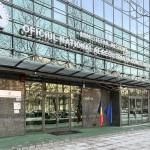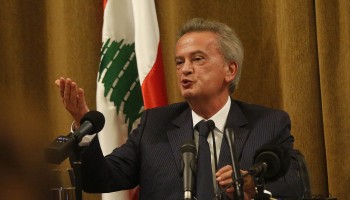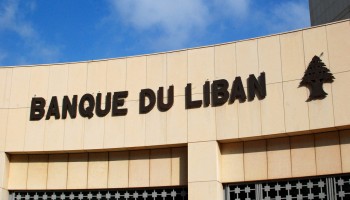A Lebanese court has ordered the release of former central bank governor Riad Salameh on bail of more than $20 million, over charges of embezzling $44 million in public funds.
The ruling comes nearly a year after the 75-year-old was arrested in September 2024 on multiple financial charges, including embezzlement of public money. In April, a judge referred Salameh to trial on counts of embezzlement and illicit enrichment.
Along with bail, the court imposed a one-year travel ban on Salameh. His lawyer, Mark Habka, called the bail an “illegal” amount and said they will sek a reduction. Despite the order, Salameh had not yet been released as of Tuesday.
Regardless of the release decision, under the Lebanese Code of Criminal Procedure, Salameh’s release was due on September 4, when his pretrial detention period of six months—renewable only once—expires.
But Ghada Aoun, former prosecutor general of Mount Lebanon, argued that bail is not mandatory in cases as serious as Salameh’s. His alleged crimes, she told OCCRP, “led to the collapse of the Lebanese economy and the impoverishment of an entire people,” and a judge is not obliged to grant release even after one year in pretrial detention.
The bail—set at $20 million plus 5 billion Lebanese pounds ($55,655)—has been described as the largest in the country’s history. Aoun dismissed the figure, saying it is not significant “considering the billions he stole.”
Walid Marrouch, an economics professor at the Lebanese American University, noted that compared with the $44 million embezzlement charge, the bail amounts to roughly half that figure. International investigations go further, estimating that Salameh siphoned as much as $330 million from the central bank. “In that context, the bail is only a much smaller fraction of the sums he is accused of misappropriating,” Marrouch told OCCRP.
Aoun warned that the release could allow Salameh to evade justice. “In my view, Riad Salameh will not be acquitted, but the system is merely trying to create the appearance of pursuing him by detaining him for a limited period. If this system remains in control, he will never face trial; the files will be diluted, time will pass, and the case will be lost, with the corrupt judiciary complicit,” she said.
“What matters is not the arrest, but the follow-up of the case, the issuance of the indictment, and his referral to trial,” Aoun added.
Financial tax lawyer Karim Daher echoed that view, telling OCCRP that even if Salameh were acquitted, “nobody can doubt or pretend that he is not one of the main figures responsible for this financial collapse and turmoil. He is not the only one—far from it. The entire political and ruling elite, along with major bankers, are also jointly responsible.”
Marrouch said that even if cleared in court, Salameh will likely remain condemned “in the court of public opinion” for his monetary policies, and that Lebanon’s collapse was rooted in decades of corruption and economic mismanagement by the political class. He also expressed doubt that the legal system would deliver accountability, noting it “has a history of being obstructed by political interference.”
Salameh, who led Banque du Liban (BDL) for three decades before stepping down in July 2023, has denied wrongdoing and says his wealth comes from prior employment and personal savings.
He remains under investigation in several European countries, where he is suspected of embezzling Lebanese public funds and laundering them through real estate purchases and offshore bank accounts.
In 2022, the European Union Agency for Criminal Justice Cooperation (Eurojust) froze assets worth €120 million ($140.2 million) linked to Salameh, including properties previously revealed by OCCRP.
Daher said that while legal tools exist to pursue accountability, “they have not been used because of political blockage and obstruction by those who hold the power to decide on prosecutions.”






